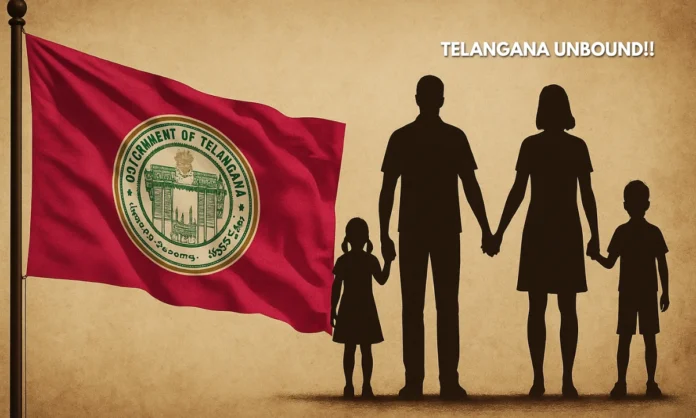Key Highlights
- Telangana Cabinet abolishes decades-old two-child norm for local body election candidates effective immediately
- Government approves takeover of Hyderabad Metro Phase 1 from L&T to accelerate expansion under Phase 2A and 2B
- State achieves record 148 lakh tonnes paddy production with government committing Rs 23,000 crore for procurement
Policy Reform and Democratic Participation
The Telangana Cabinet made a landmark decision on October 16, 2024, to eliminate the restrictive two-child norm for candidates contesting local body elections. Under the previous regulations implemented in 1994, individuals with more than two children were barred from contesting elections to Mandal Parishad Territorial Constituencies (MPTCs), Zilla Parishad Territorial Constituencies (ZPTCs), ward member positions, and sarpanch roles. Minister for Information and Public Relations P. Srinivas Reddy announced that the Telangana Cabinet received numerous representations requesting the abolition of this norm, particularly given the state’s successful implementation of population control measures through other means.
The two-child norm policy originated in the erstwhile Andhra Pradesh state through a 1994 Assembly amendment bill designed to control population growth. Several states including Rajasthan (1992), Odisha (1993), Haryana (1994), Himachal Pradesh (2000), Madhya Pradesh (2000), Chhattisgarh (2000), Uttarakhand (2002), Maharashtra (2003), Gujarat (2005), Bihar (2007), and Assam (2017) adopted similar measures. However, over time, Chhattisgarh, Himachal Pradesh, Madhya Pradesh, and Haryana repealed the policy, with neighboring Andhra Pradesh joining this list in 2024.
స్థానిక సంస్థల ఎన్నికల్లో…
— Congress for Telangana (@Congress4TS) October 16, 2025
ఇద్దరు పిల్లలుంటే పోటీకి అనర్హత…
నిబంధన ఎత్తేసిన తెలంగాణ ప్రభుత్వం#Telangana #Cabinet pic.twitter.com/RJurdRBavs
Metro Rail Infrastructure Transformation
The Telangana Cabinet approved a comprehensive plan to expedite the Hyderabad Metro Rail expansion process through a strategic takeover of Phase 1 operations from Larsen & Toubro (L&T). The government determined that the existing public-private partnership model had become an obstacle for Metro expansion under Phase 2A and Phase 2B projects. Following extensive negotiations between Chief Minister A. Revanth Reddy and L&T Chairman S.N. Subrahmanyan, an in-principle agreement was reached for the state to acquire L&T’s stake in the project.
The financial structure of the takeover involves the state government assuming project debt of approximately Rs 13,000 crore and paying Rs 2,100 crore to L&T as a one-time settlement for their equity investment. A high-level committee chaired by the Chief Secretary will study the feasibility and legal aspects of the takeover, with members including the Principal Secretary of Finance, Secretary of Municipal Administration and Urban Development (MAUD), Law Secretary, Metro Rail MD, and Urban Transport Advisor. The Telangana Cabinet committee will submit its recommendations to a Cabinet Sub-Committee on resource mobilization before final cabinet approval.
Agricultural Achievement and Farmer Support
Telangana achieved unprecedented agricultural success with record paddy production of 148.03 lakh tonnes during the kharif season 2024-25. This represents the highest paddy production by any state in the country, marking a significant milestone under the leadership of Chief Minister Revanth Reddy and Deputy Chief Minister Mallu Bhatti Vikramarka. The state’s remarkable agricultural progress is evident from the consistent rise in paddy output, increasing from 72 lakh metric tonnes in 2019-20 to 148 lakh metric tonnes in 2025-26.
The Telangana Cabinet demonstrated its commitment to farmer welfare by approving the procurement of 80 lakh metric tonnes of paddy, requiring an investment of Rs 22,000-23,000 crore. Civil Supplies Department estimates indicate that 80 lakh metric tonnes of paddy will reach procurement centers across the state, with the central government agreeing to procure 50 lakh tonnes while the state requested an additional 15-20 lakh tonnes. The procurement infrastructure includes 8,342 paddy procurement centers established statewide, comprising 4,259 centers through primary agricultural cooperative societies, 3,517 through IKP centers, and 566 through other organizations. The government guaranteed payment to farmers within 48 hours of paddy registration and committed to procuring every grain produced during the season regardless of financial challenges.
Infrastructure Development and Educational Expansion
The Telangana Cabinet approved significant infrastructure and educational initiatives aimed at long-term state development. Three new Agriculture Colleges will be established in Huzurnagar, Kodangal, and Nizamabad to enhance agricultural education capacity. NALSAR University of Law received approval for an additional seven acres of land at its existing Hyderabad campus, along with an increase in local student quota from 25 percent to 50 percent.
The Roads & Buildings Department received authorization to issue tenders for constructing 5,566 kilometers of roads worth Rs 10,547 crore under the Hybrid Annuity Model (HAM). This ambitious project encompasses road construction, upgradation, and maintenance connecting Gram Panchayats to mandal headquarters, mandal headquarters to district headquarters, and district headquarters to state headquarters. Additionally, the Telangana Cabinet approved Rs 438 crore for acquiring 845 hectares of land for the Krishna-Vikarabad broad gauge railway line construction. The government also agreed to bear one-third of the total cost (Rs 7,500 crore) for constructing the 75-kilometer Mannanoor-Srisailam elevated corridor over reserved urban forest, a joint project with the central government.
Final Perspective
The Telangana Cabinet’s comprehensive policy decisions reflect a strategic approach to governance that balances democratic participation, infrastructure modernization, and economic development. The elimination of the two-child norm for local body elections removes barriers to political participation while the Metro Rail takeover positions the state for enhanced urban transportation infrastructure. The record agricultural production and robust procurement commitment demonstrate the government’s dedication to farmer welfare and food security. These synchronized policy initiatives across political, infrastructural, and agricultural sectors indicate Telangana’s commitment to sustainable development and inclusive governance under the current administration led by the Telangana Cabinet.


